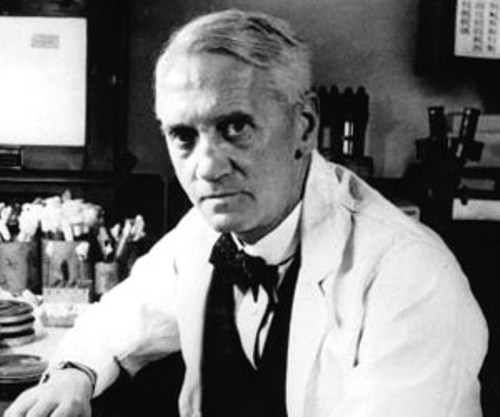10 Facts about Alexander Fleming
Facts about Alexander Fleming give you the interesting facts about the famous pharmacologist, biologist and botanist. There are many articles about chemotherapy, immunology and bacteriology that he had made. Find out more about this Scottish scientist below:
Facts about Alexander Fleming 1: life span
Alexander Fleming was born on 6 august 1881 at Lochfield farm near Darvel, in Ayrshire, Scotland and passed away on 11 March 1955.
Facts about Alexander Fleming 2: parents
Let’s find out the parents of Alexander Fleming. His father was Hug Fleming who lived in 1816 till 1888. He was only a farmer. His mother was Grace Stirling Morton who lived in 1848 till 1928. Fleming was the son of his father’s second marriage. There were four children in the family and he was the third child.
Facts about Alexander Fleming 3: the famous discoveries
Alexander Fleming contributed a lot of the medical world. In 1928, he discovered the antibiotic substance penicillin from mould Penicillium notatum. In 1923, he discovered enzyme lysozyme.
Facts about Alexander Fleming 4: Nobel Prize
Due to the discovery of Penicillin antibiotic, he got Nobel Prize in Psychology or Medicine along with Ernst Boris Chain and Howard Florey. Get facts about Albert Einstein here.
Facts about Alexander Fleming 5: education
Let’s find out his early education. He attended Loudoun Moor School and Darvel School. Before he moved to London, he went to Kilmarnock Academy. He got a two year scholarship in this academy. Then he studied at Royal Polytechnic Institution.
Facts about Alexander Fleming 6: working
Fleming was a worker in a shipping office for almost 4 years. He changed his career path after Tom, his elder brother, gave him advice to become a physician just like what he did.
Facts about Alexander Fleming 7: education
To become a physician, Fleming went to St Mary’s Hospital Medical School in Paddington in 1903. He had a MBBS degree after graduating from the school.
Facts about Alexander Fleming 8: a rifle club
Fleming was one of the members in the rifle club in this medical school. Fleming took the suggestion of the capital of the rifle club to become an assistant bacteriologist, Sir Almroth Wright. He was expert in vaccine therapy and immunology.
Facts about Alexander Fleming 9: a new degree
Fleming got a BSc degree with Gold medal in Bacteriology in 1908. Until 1914, he taught at St Mary’s. Find out facts about Ada Lovelace here.
Facts about Alexander Fleming 10: World War I
During World War I, he was involved in the Royal Army Medical Corps. When the war was over, he went back to St Mary Hospital. In 1928, he was appointed as the Professor of Bacteriology in University of London.
Are you impressed with facts about Alexander Fleming?






